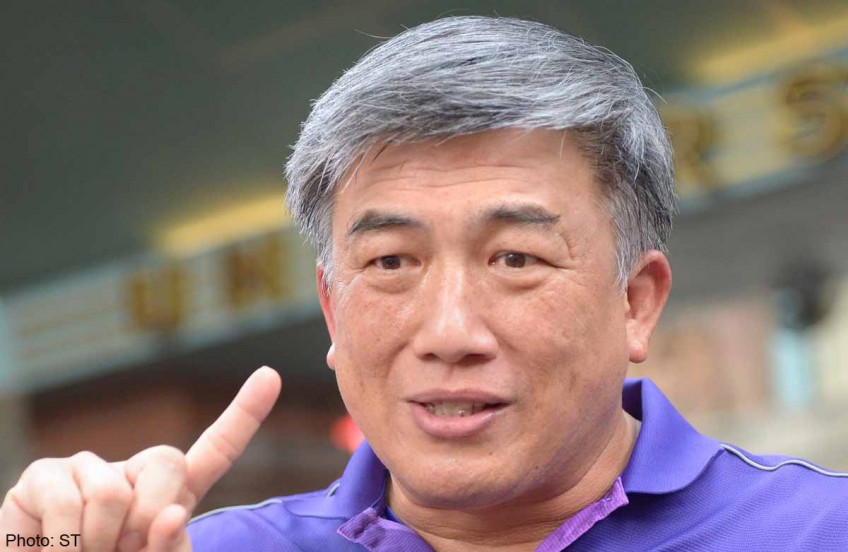SEA Games: One to light Games cauldron already chosen


It underwent a difficult, much-debated process - but Sport Singapore has finally chosen who will light the South-east Asia (SEA) Games cauldron at the opening ceremony at the National Stadium on June 5.
With just 30 days to go to the biennial event, Sport Singapore chief Lim Teck Yin (above), who is also chairman of the organising committee, is, of course, keeping the identity a secret.
A few names have been bandied about for that honour, most notably former swim queen Joscelin Yeo, who is the region's greatest gold-medal winning machine with 40.
Others that have been discussed by the public and the sports fraternity include former weightlifter Tan Howe Liang, Singapore's first Olympic medallist when he won silver at the 1960 Rome Games, football icon Fandi Ahmad, current swim star Joseph Schooling (left) and former freestyle sprint king Ang Peng Siong.
Lim explained that the selection process revolved around the theme of the 28th SEA Games - "Celebrate the Extraordinary", and that the torch-bearers chosen for the entire lighting ceremony epitomised that message and have a unique success story to tell. He said: "Each of the athletes we've chosen embody the theme and story. That was one part of the process.
"The second consideration was determining who the people would know, recognise and connect with."
At the 1973 SEAP Games, the one who lit the flame was track hero C Kunalan.
Ten years later, the mastermind behind Singapore track and field's glory years, the late Tan Eng Yoon, was the chosen one.
In 1993, the last time the Games was held in Singapore, bowling queen Grace Young was handed the honour.
ANTICIPATION
Traditionally, it is the most anticipated moment of the opening ceremony at any Games, and there will be tremendous speculation and heightened anticipation as the clock ticks down to the moment.
"Whoever we chose, at some point, there were yays and nays; so the process was not easy. (In the end) we didn't have unanimity," Lim revealed.
"Another part of the process was finding someone who wasn't affected by the competition schedule. In trying to select the torch-holder, one or two of the athlete's coaches said 'no' because of this."

This article was first published on May 6, 2015.
Get The New Paper for more stories.